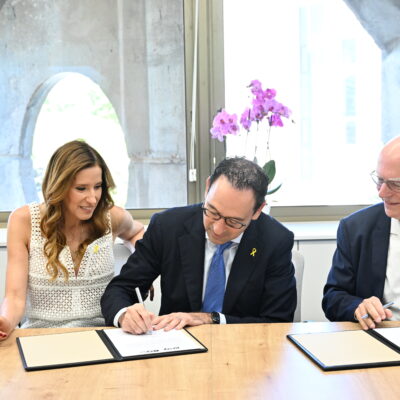Mapping Goals in Experiential Jewish Education
by Shuki Taylor
In recent years, experiential Jewish education (EJE) has emerged as a central task of Jewish education and a key strategy in engaging adolescents and emerging adults in Jewish life. Yet, despite significant academic and organizational focus on the field, the field remains underdeveloped. Core theoretical foundations have yet to be established and widely accepted by practitioners and scholars. Practitioners have different ideas about effective experiential Jewish education and they engage in their practices differently. Moreover, when they look at a moment of effective EJE, each stakeholder does not see the same principles and strengths in that moment.
In 2012-13, as part of an investigation about the role that goals, indicators and outcomes play EJE, the Department of Experiential Jewish Education at Yeshiva University’s Center for the Jewish Future, with support from the Jim Joseph Foundation, created a research project to address three sets of questions:
1: Goal Setting: What does it mean for practitioners to be intentional? To what extent do practitioners set goals for their work? How do practitioners use these goals as they engage in their practice?
2: Evaluation of Goals: How do practitioners know they are meeting their goals? What indicators do they use? What is the means by which goals are evaluated?
3: Content of Goals: When participating in EJE programs, what should students be learning? Having undergone EJE, what should the impact on students be? What kinds of behaviors, feelings, or cognitive knowledge should they adopt or acquire?
To explore these questions, Dr. Beth Cousens, an external consultant with expertise in research, evaluation, and goal-setting turned to twenty-two expert practitioners across the field of EJE. We chose to define EJE broadly, allowing organizations to help us understand the widest picture of goals as possible. We deliberately included organizations that range in denomination, age, ideology and geographic location. Furthermore, to gain a number of perspectives, we spoke to different types of practitioners, ranging from organizational Executive Directors to program directors; from national offices to local branches of national organizations.
Our approach in the study is that of “Grounded theory”, suggesting that theory is developed through the systematic gathering and analyzing of data in order to produce an idea or set of ideas. We began with a general area of focus and research question rather than a specific hypothesis, then engaged in study, allowing ideas to come from the data, with data points building as the research is conducted. By studying the field in this bottom-up approach, we were able to create a portrait of goals in EJE work, using real language from practice.
In introducing our questions, we immediately found evidence of a broad range approaches and a lack of uniformity within EJE. Practitioners understood the word “goal” in all kinds of ways, sometimes choosing a different language for their work. We discovered that many of the practitioners with whom we spoke did not have robust goals recorded and often had not spent time reflecting on the nature of their goals. As a result, we explored the nature of their work from multiple perspectives, trying to understand what they are trying to do and, in the absence of written goals, what drives them to make decisions about which activities to facilitate.
While there was inconsistency in how practitioners understood goals and a lack of uniformity in how these goals are recorded, we did find uniformity when it came to the content of these goals. We discovered that EJE organizations have similar goals, whether they are written down explicitly or are implicit in their work and their conversation about their work. These goals include:
- Helping students to see Judaism as personally relevant and meaningful.
- Helping students engage in Jewish life at their own motivation and on their own terms.
- Helping students develop interpersonal skills.
- Helping students learn various aspects of Jewish subject matter.
The study professes to being an introductory study, and raises big questions that still need to be explored: On what foundational principles should EJE be based? What is rigor in this field? How can research about the field’s principles feed into practice? With practitioners generally not familiar with goal-setting, how can practitioners develop the skills and capacities necessary to set them?
Experiential Jewish education has grown significantly as a field in the past decades. Our research points to the extent to which inconsistency continues to exist within the field itself. Language differs among practitioners, and educational ideas have not found their place consistently among EJE organizations.
At the same time, the study demonstrates that by practicing grounded theory – talking with practitioners and documenting their ideas and even observing moments in the field – we can begin to isolate ideas and create language that is based in real practice and, therefore, might be adopted by many. We can begin to identify the principles behind the work of EJE practitioners and create a common language with which to exchange ideas and strengthen our work.
You can read the full report “Mapping Goals in Experiential Jewish Education” here.
Please join us for a conversation about the implications of this study and future steps for research of experiential Jewish education on Monday, December 9th in NYC, featuring renowned experts Dr. David Bryfman, Dr. Carmen Hendricks, Dr. David Pelcovitz and Dr. Amy Sales. To RSVP for the event click here.
To learn more about the YU Certificate Program in Experiential Jewish Education click here.
Shuki Taylor is Director of Experiential Jewish Education at Yeshiva University’s Center for the Jewish Future.














